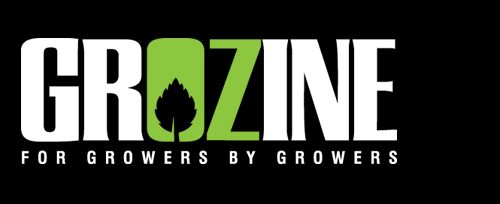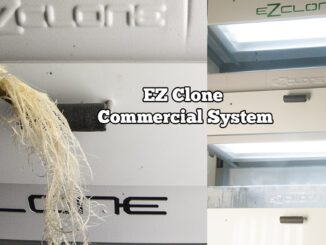
Futuristic Farming | BY EILEEN MELLON |
Photo: Greenswell Growers President Carl Gupton in a warehouse where edible greens are grown in a controlled environment (Photo by Justin Chesney)
Just west of Short Pump in Goochland County, an earth-toned building resembling a farmhouse is home to Greenswell Growers, one of the most technologically advanced greenhouses in the mid-Atlantic region. The farming facility blends traditional and controlled agriculture, and it’s expected to produce 750,000 pounds of lettuce a year.
The U.S. Department of Agriculture estimates that about 30%-40% of food is wasted. Greenswell Growers aims to change that
“This is the solution, this is the wave of the future,” says company President Carl Gupton, pointing to a warehouse lined with symmetrical rows of red leaf lettuce and arugula as far as the eye can see.
From seedlings to crisp heads of lettuce, Greenswell grows and monitors the produce in mini microclimates. The business uses a Green Automation system from Finland, in addition to 13 white boxes spread throughout the facility that hover above the plants, assessing light levels, temperature, humidity and airflow for more than 12,750 channels inside the greenhouse at any given moment. The boxes report back to a main computer, and if clouds roll in, the lights get brighter; if temperatures inside rise, the system cools down the greenhouse.
“It gives the plant the ideal growing environment,” Gupton says. “It’s a very similar environment to what would be best-case scenario in the traditional field.”
Founded in 2021 by Gupton and partners Chuck Metzger, John May and Doug Pick, longtime CEO of hunger-relief nonprofit Feed More, Greenswell is the first controlled-environment agriculture project of its kind in the area. A few years ago, Pick had a conversation with his friend Metzger about the lack of fresh produce Feed More could provide to people in need. While canned and boxed food were abundant, fresh produce was scarce.
During a trip to Virginia’s Northern Neck, an agriculture-heavy area of the state, Metzger stumbled across a small hydroponic greenhouse that was yielding fresh, pest-free food year-round. A lightbulb went off: Grow produce on a large scale and get it into the hands of nearby consumers and chefs.
“All of our lettuce [in grocery stores] comes out of the West Coast; 95% of what we consume comes out of Salinas, California, or Yuma, Arizona, and has to ship all cross-country,” says Gupton, who has a background in food packaging.
With a 10-day shelf life, and about half that time spent in transit, lettuce is one of the most frequently purchased items at the grocery store — and the most frequently thrown away. The U.S. Department of Agriculture estimates that about 30%-40% of food is wasted. Greenswell Growers aims to change that.
“Today we harvested something that made it on a truck that will be in a chef’s kitchen tonight or tomorrow at the latest,” Gupton says, noting that Greenswell’s greens can stay fresh for about 21 days. “It can be as fast as 12 hours. This business makes a lot of sense right now. Bring consistent fresh produce locally to people, eliminate all the transportation, the whole carbon footprint.”
When the lettuce is ready to harvest, growing channels swing 90 degrees, and the greens pass through circular blades that cut them at the base. After traveling down a chute into the processing room, they are washed, weighed and packaged into 5-ounce trays, then boxed and placed on a pallet for delivery to area stores. The facility recycles the water, which is then fed back to the feed tanks and allows Greenswell to use 85% less H20 than the average commercial farm.
Adding to the region’s developing hub for controlled-environment agriculture, in September, California-based company Plenty Unlimited announced plans to build a $300 million vertical farming campus in Meadowville Technology Park in Chesterfield County that will grow Driscoll’s strawberries, the company behind one-third of the $6 billion U.S. berry market.
Controlled farming, a blend of both science and nature, poses the question about the fate of local purveyors. Is it a threat? Gupton says the approach is not about eliminating small-scale growers or farmers markets, it’s about establishing a model with longevity.
“I’m not trying to take business from mom-and-pop farmers. The farming practices of large corporate farming is very different from what we’re doing,” he says. “It’s the way of the future; it’s how we’re going to feed our populations.”
Original Article: https://richmondmagazine.com/restaurants-in-richmond/sustainability-food/



